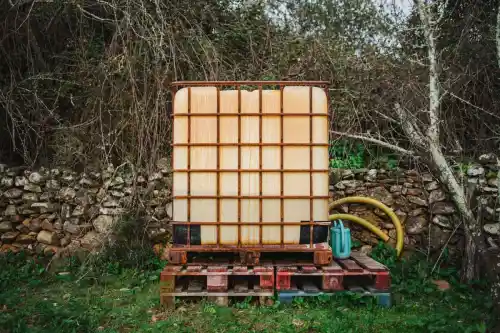 Add My Company
Add My Company
A Guide to Agricultural Water Tanks

Many components go into the success of a farm, yet none more important than water. Any farmer would likely attest to the necessity for clean water, available and accessible year-round. In light of several factors, such access has come under threat, forcing farmers to innovate their water storage methods.
In this article, we’ll examine how farmers across the UK access water for their farms, and a solution for farm water storage.
Do Farms Have Their Own Water Supply?
At the mercy of fluctuating weather conditions and potential water shortages, prudent farmers understand the value in establishing their own secure and reliable water supply for their farms. Not only does it guarantee access to clean water, but it will likely be a cheaper option.
The source of this water supply will vary based on the resources accessible by that farm. Whether they rely on freshwater bodies, groundwater or rainwater, the key to a consistent water supply is farm water storage in agricultural water tanks, rather than dependence on the source.
Where Do Farmers Get Their Water in the UK?
In the UK, water is accessible from various sources, leaving farmers with different options depending on their location.
Water that we access in our homes through indoor plumbing come from the mains water supply, which sources water from reservoirs and freshwater bodies such as lakes and rivers. Although accessible by farmers, it may not be the most efficient method to irrigate a farm.
Farmers depend primarily on rainwater, with other sources serving to augment their farm’s needs. These supplementary sources may include the mains water supply. However, watercourses such as streams, culverts and rivers running through or adjacent to the land, and groundwater extracted through a borehole are additional viable sources.
How Do You Store Water on a Farm?
Farms need a reliable and consistent source of water in order to produce crops and raise livestock. However, environmental factors such as climate change and pollution, and the increasing cost of water gradually endanger access to these sources. Now more than ever farmers require a reliable method to store water for their farms.
Water can be accessed from a myriad of sources. Nonetheless, a key aspect of water storage is finding a container suited for farm water storage. An agricultural water tank need not be a literal tank, but it should offer similar features.
The container should be able to store enough water to meet your farm’s demands in times of drought or water shortage and be easily stored on the property during other times. Given that the water will be used to either water crops, feed animals or both, the farm water storage tank must be of food grade quality, capable of storing potable water.
While there are different types of agricultural water tanks, using an intermediate bulk container or IBC container for farm water storage can present many benefits, whether the water is meant to irrigate crops or feed livestock. Available in different sizes, IBCs are designed to store hundreds of litres of water, more than other containers on the market. Composed of high-density polyethylene or HDPE and encapsulated in a metal frame, these containers are designed to be recycled and reused for several years, depending on the material they are storing.
Water, being a non-corrosive substance, will promise a long lifespan for your farm’s IBC. As a farm water storage tank, IBCs can be outfitted to catch water from different sources, such as connecting pipes to redirect rainwater. Storage is as simple as closing the container to avoid contamination, using the valve at the base to access the water, and rotating the IBC every six months to prevent stagnation.
Do Farmers Pay for Water in the UK?
Farmers in the UK largely depend on rainwater for their farm’s water supply, which is a free resource. However, the amount of rain the land receives will vary. Therefore, farmers have to rely on other sources for water to meet their farm’s demands. The water from these additional sources will come at a price.
For example, a farmer looking to supplement their water supply with water from the mains water supply will be paying a company directly to provide them with water. Alternatively, a farmer interested in using groundwater must first secure an abstraction license for a fee. Afterwards, they need to employ a company to drill a borehole on their property, so they can access the groundwater. On top of paying for the source of their water supply, they will also invest in agricultural water tanks to store the water they’ve sourced.
Contact ITP Packaging
Whether you’re looking for a farm water storage tank or a container for pesticides or animal feed, ITP Packaging has a range of containers equipped to meet your farm’s needs. Contact our team of professionals today to secure your farm’s water supply.
For more information on A Guide to Agricultural Water Tanks talk to ITP Packaging Ltd

